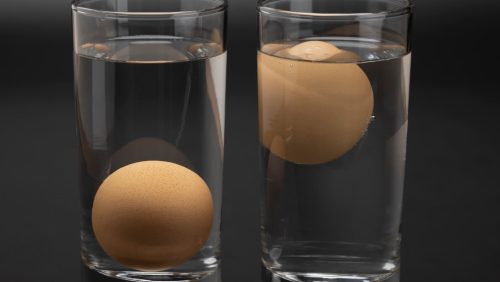Do you need help with keeping your eggs fresh? We’ve all been there, standing in our kitchens, trying to determine whether that carton of eggs is still good or destined for the trash. The last thing anyone wants is a culinary disaster caused by spoiled eggs.
Identifying bad eggs can save you from potential foodborne illnesses and wasted ingredients. In this guide, we’ll walk you through the signs of a “bad” egg before and after cracking it open. Plus, we’ll share five easy ways to quickly assess their freshness without relying solely on expiration dates.
So, let’s crack into it (pun intended) and discover how you can confidently tell if your eggs are bad!
What is a Bad Egg?

Eggs, like any other food product, can go bad over time. But what exactly makes an egg “bad”? A bad egg has become spoiled or contaminated and is no longer safe to consume. This can happen due to bacterial growth inside the egg or external factors such as temperature fluctuations or improper handling. Identifying these signs early on is crucial for maintaining your health and ensuring you enjoy fresh eggs every time you open one.
Signs of a Bad Egg after Cracking
After cracking an egg, there are several signs to look out for that indicate it may be bad. Check the appearance of the yolk and white. If they have a strange colour or smell unpleasant, it’s likely spoiled. Additionally, any formation of mould or unusual textures should raise red flags. Remember to trust your senses when determining if an egg is bad after cracking it open.
Signs of a Bad Egg Before Cracking
Before you even crack open an egg, some signs can indicate if it’s bad. Look for any visible cracks or leaks in the shell, as these could be signs of spoilage. Additionally, check for any unusual discolouration or mould on the shell. It may have gone better if the egg feels unusually heavy or light compared to other eggs. Examining these visual and tactile cues allows you to determine if an egg is good to use before cracking it open.
How to Tell if Eggs Are Bad? – 5 Easy Ways
1. See if the Egg Floats

One simple method to determine if an egg is bad is to see if it floats. Fill a bowl with water and gently place the egg in it. If the egg sinks to the bottom and lays flat on its side, it’s fresh and safe to eat. However, if it starts to float or stands upright at an angle, it may be spoiled. Floating occurs when gases build up inside the shell as the egg ages, indicating it has gone bad.
2. Shake the Egg
When trying to determine if an egg is bad, one method you can try is shaking it. Give the egg a gentle shake and listen for any sloshing sound inside. Hearing a distinct noise or feeling movement could mean the yolk has broken down and spoiled. Fresh eggs should not make a noise when shaken, as the yolk and white are still intact. Shake the egg to assess its freshness before cracking it open!
3. Sniff the Egg

One of the easiest ways to determine if an egg is bad is by sniffing it. Take a whiff of the raw egg and trust your sense of smell. The egg has likely gone bad if you detect a strong, unpleasant odour. Fresh eggs have virtually no scent, so any foul or sulfur-like smell should be a warning sign. Don’t underestimate the power of your nose when it comes to assessing egg freshness!
4. Inspect the Shell
When it comes to determining if an egg is bad, inspecting the shell can provide valuable clues. Start by looking for any cracks or damage on the shell’s surface. A cracked shell can increase the risk of bacteria entering and spoiling the egg. Additionally, check for any unusual discolouration or mould growth on the shell, as these are signs that the egg may be spoiled. Paying attention to the condition of the shell is an important step in assessing egg freshness.
5. Check the Expiration or Sell-by Date

Checking the expiration or sell-by date is a simple yet effective way to determine if eggs are bad. Always look at the date printed on the carton before using them. If the eggs have passed their expiration date, it’s best to discard them. Remember, consuming expired eggs can increase your risk of foodborne illnesses. Stay safe and prioritize freshness!
Conclusion
Knowing if eggs are bad is essential for every home cook. By understanding the signs of a bad egg before and after cracking, you can ensure that your dishes are safe and delicious.
If you need clarification on an egg’s freshness, there are simple tests you can perform at home. The float test involves placing an egg in a water bowl; it may need to be better if it floats rather than sinks to the bottom. Another method is shaking the egg gently; if you hear sloshing sounds, it’s likely past its prime.
Ensuring that your eggs are fresh will not only prevent unpleasant surprises while cooking but also minimize any potential health risks associated with consuming spoiled food.
So next time you reach into your refrigerator for those eggs, take a moment to examine them closely before cracking them open. With these tips and tricks, you can confidently determine whether they’re good or bad – ensuring that your culinary creations always turn out perfectly!

